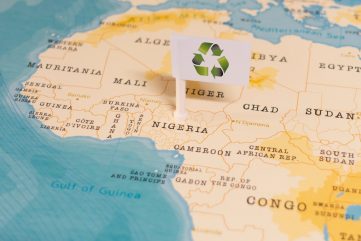
A new project entitled Partnership for Responsible Battery and Metal Recycling is set to begin in Nigeria.
The project aims to improve battery recycling in the country, raise labour and environmental standards and establish sustainable trade flows for raw materials.
Nigeria is home to one of the largest lead-acid battery recycling industries in Sub-Saharan Africa.
Partners from Nigerian civil society, the metal processing industry and the solar industry are working together with research and consultancy organisation the Oeko-Institut to develop a co-operative approach to the responsible recycling of lead-acid batteries.
The project is liaising closely with the Nigerian Federal Ministry of Environment and the country’s environmental enforcement agency, the Nigeria Standards and Regulations Enforcement Agency.
The Oeko-Institut and the industrial partners are providing knowledge of environmental protection and occupational safety for recycling plants and training plant managers to improve environmental performance and plant safety.
The partners are also developing concepts for how Nigerian regulatory authorities might introduce and monitor binding standards for environmental protection and occupational health and safety, then implement them together with local companies.
Co-operation with other sectors is to be initiated, for example with the Nigerian solar industry which requires environmentally sound solutions for used batteries and the packaging industry.
The German and international metals industry is reportedly interested in responsible supply chains for secondary raw materials.
The project is funded by Germany’s Federal Ministry for Economic Co-operation and Development and supported by the Deutsche Gesellschaft für Internationale Zusammenarbeit GmbH.



